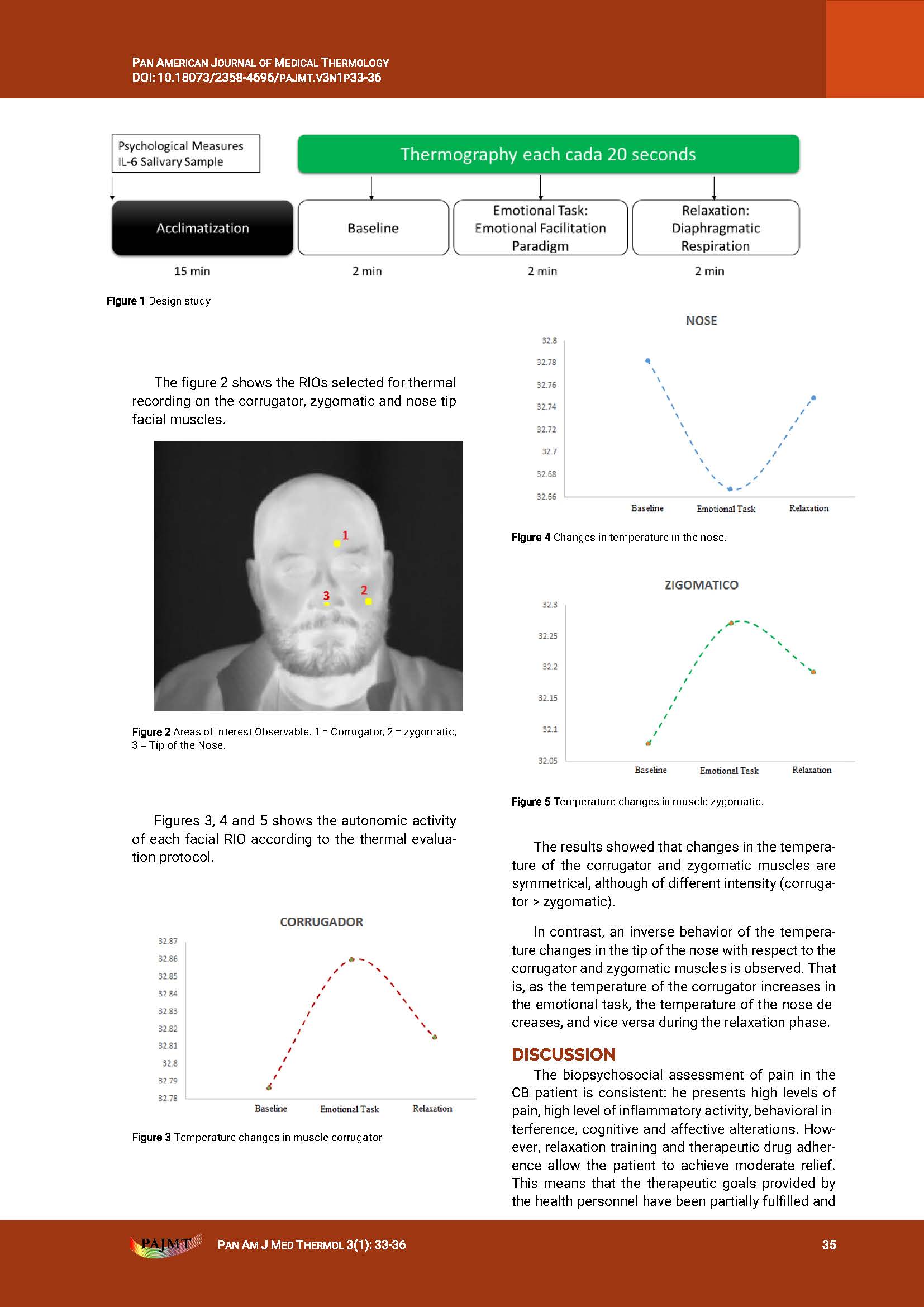Psychophysiological facial thermal assessment of the relaxation in a patient with osteoarthrosis
Resumo
The biopsychosocial evaluation of a 61-year-old male patient with a diagnosis of osteoarthrosis for 8 years is presented. A salivary sample of the inflammatory response of interleukin 6 (IL-6), its heart rate variability, and psychological measures associated with pain were collected. An A-B-A design was used to assess their thermal response from relaxation training after a stress test. The corrugator, zygomatic and nose tip muscles were evaluated. The results indicate a high concentration of IL-6, a high level of pain with a behavioral and cognitive interference; however, because of the psychological management of relaxation training, there is also a high variability of heart rate, moderate relief of pain with therapeutic adherence. During the emotional task increased temperature of the corrugator and zygomatic muscles, while temperature of the nose decreased. Subsequently, during the relaxation phase the patient reversed the effects: increase the temperature of the nose along with the thermal decrease of the corrugator and zygomatic muscles. Lack of incorporating cognitive and psychosocial strategies for the integral management of pain.




